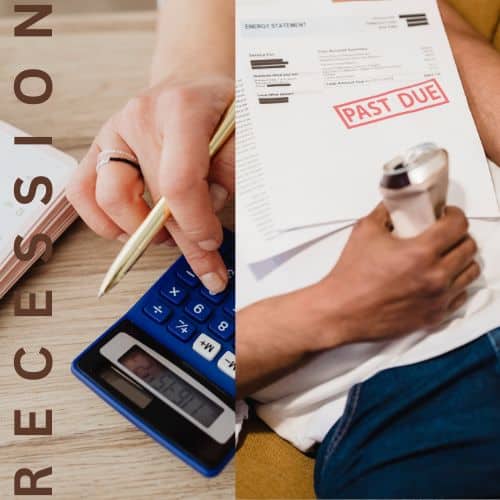What Is Recession?
A recession is when the economy experiences a slowdown in economic activity and usually leads to a decline in the GDP.
It is a downward turning point where the economy enters a period of slow growth or even contraction. A recession is usually accompanied by a rise in unemployment and lower stock market prices.
Recessions are typically caused by a combination of factors, including but not limited to:
-a decrease in aggregate demand
-an increase in aggregate supply
-a financial crisis
-an external shock
-a natural disaster
As we all know, the economy is unpredictable. There are many variables that can change the economy and make it go through a recession. These include:
-Decrease in demand for goods and services
-Decrease in production of goods and services
-Government policies that affect the supply of money and credit to businesses and consumers
-Decline in exports from other countries, which reduces demand for imports from other countries
-A decline in consumer confidence or optimism about the state of their personal finances or the general economy.
How to prepare for an economic downturn?
In order to survive a recession, you should focus on your job skillset. You should also plan ahead for a possible economic downturn. To make yourself better prepare for recession or economic downturn, you can check the following:
Step 1. Track Your Spending
The first step to prepare yourself for a recession is keep tracking your spending. There are many ways to track your spending. You can track your spending with a checkbook, with cash, or even with a spreadsheet.
The problem with using cash or a checkbook is that you have to manually keep track of every transaction. A spreadsheet will give you the information needed, but it is not as quick and easy to use.
You can use a credit card or a debit card to automatically track your spending. This is a great option for those who are not very organized with their finances.
If you have tried out this method in the past, you may want to consider using another method of tracking your spending. The spreadsheet will give you the information needed, but it is not as quick and easy to use.
Step 2. Get Out Of Debt
The second step to prepare yourself for a recession is getting out of debt. Pay off all credit card debt and get rid of high interest rate loans. Debt is a major problem for many Americans. There are three types of debt:
- Credit card debt
- High-interest loans, and
- Student loans.
The first step to getting out of debt is to pay off credit card debt and get rid of high interest rate loans.
Step 3. Build An Emergency Fund
The third step to prepare yourself for a recession is building an emergency fund with 3-6 months salary stored in a high-yield savings account for emergencies and life hiccups.
The emergency fund should be your top priority. Building an emergency fund is a good idea for everyone, but it is especially important for people who are living paycheck to paycheck.
Whether you are saving for the first time or rebuilding your savings. There are many benefits of having an emergency fund that can be used in case of a job loss or other emergencies: peace of mind, financial stability, and protection against debt.


